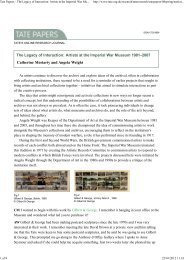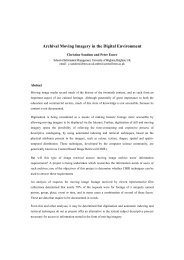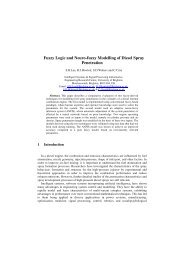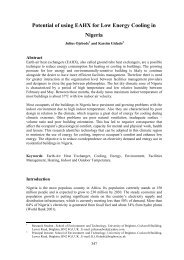TOP TIP - University of Brighton Repository
TOP TIP - University of Brighton Repository
TOP TIP - University of Brighton Repository
You also want an ePaper? Increase the reach of your titles
YUMPU automatically turns print PDFs into web optimized ePapers that Google loves.
Young Fathers Workers<br />
44<br />
Learning Points<br />
‘Some agencies can be overtly hostile to start with - not<br />
understanding - the ability to get inside and prove worth<br />
before the project’s actually delivered something, is<br />
absolutely vital.’<br />
✱ It’s not the interrelation <strong>of</strong> gender, ethnicity, or age that matters in setting<br />
up and delivering effective support for young fathers, rather it is the skills<br />
<strong>of</strong> a worker that are important (though <strong>of</strong> course such skills partly flow<br />
from an individual’s background and experience). Practitioners require a<br />
broad range <strong>of</strong> transferable and specific skills in order to maximise<br />
potential successes. Sure Start in the West Bowling and Manningham<br />
areas <strong>of</strong> Bradford tell us that the ability <strong>of</strong> a practitioner to network and<br />
be able to explain the benefits <strong>of</strong> the work clearly to other pr<strong>of</strong>essionals,<br />
are essential skills in young fathers work.<br />
✱ Workers do not necessarily need to be ‘experts’ in terms <strong>of</strong> their<br />
knowledge <strong>of</strong> parenting and other issues. Instead, it is important for<br />
workers to be realistic about their own boundaries and limitations, and<br />
be able to refer to appropriate ‘others’ as and when necessary.<br />
✱ A clear message from the literature (e.g. Quinton et al., 2002) is that many health pr<strong>of</strong>essionals know little about young<br />
fathers, do not see them as central to their tasks, and feel that they lack the confidence and necessary skills to engage<br />
with young men. Because <strong>of</strong> the predominance <strong>of</strong> women in support services, it is likely that a number <strong>of</strong> these<br />
pr<strong>of</strong>essionals will be women. However, it essential that in acknowledging the role and interplay <strong>of</strong> gender in delivering<br />
support for young fathers, this does not equate to a culture <strong>of</strong> blaming female workers. Instead, it is important to recognise<br />
that the prior pr<strong>of</strong>essional experiences that many women have had <strong>of</strong>ten do not provide them with the relevant<br />
opportunities to work with young men. Consequently, there is a need to support female workers so they too are able to<br />
challenge negative beliefs about young fathers. Moreover, anti-discriminatory training that helps develop whole-team<br />
approaches which recognise young fathers as legitimate specialist and mainstream service users is also valuable.<br />
Supporting Young Fathers
















